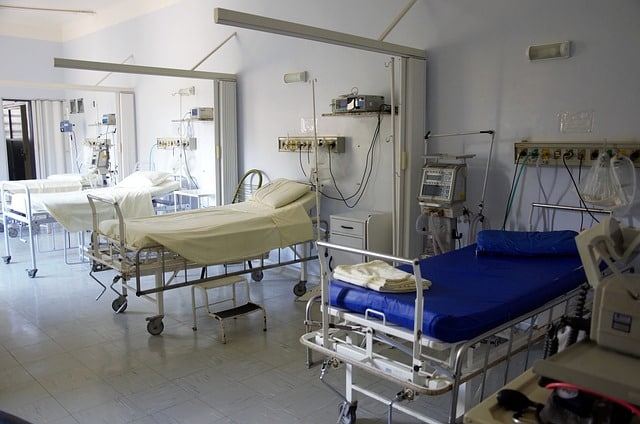Imagine CMMS as your trusty assistant, always on top of things. It’s a digital brain that organizes maintenance tasks, tracks inventory, and schedules equipment checks with utmost precision. This system doesn’t just streamline; it revolutionizes how hotels and resorts function behind the scenes.
Hospitality thrives on seamless experiences, and CMMS ensures that every room is not just clean but impeccably maintained. Think of it as a proactive guardian, alerting staff to potential issues before they escalate. By automating workflows, it frees up valuable time for staff to focus on delivering exceptional guest experiences.
One of CMMS’s superpowers lies in its ability to predict maintenance needs. It keeps a digital pulse on every asset, from HVAC systems to kitchen equipment, ensuring that everything runs smoothly without unexpected breakdowns. This predictive prowess not only saves costs but also enhances operational efficiency.
Moreover, CMMS isn’t just about maintenance; it’s a data goldmine. By crunching numbers on equipment lifespan and repair histories, it empowers managers to make informed decisions. Whether it’s budget planning or upgrading facilities, having insights at your fingertips is invaluable.

In the fast-paced world of hospitality, where reputation is everything, CMMS becomes a silent hero. It ensures that every guest’s experience is memorable for the right reasons by maintaining a flawless environment behind the scenes. After all, a well-maintained facility isn’t just a perk; it’s a cornerstone of guest satisfaction and loyalty.
So, why is CMMS crucial for managing hospitality operations? It’s the backbone that supports efficiency, reliability, and guest satisfaction—all essential elements for staying ahead in the competitive hospitality industry. Ready to elevate your operation? Discover the transformative power of CMMS today.
Streamlining Success: How CMMS Revolutionizes Efficiency in Hospitality Management
CMMS is the unsung hero behind the scenes, quietly orchestrating the smooth operation of hotels, resorts, and other hospitality establishments. At its core, CMMS is a digital tool that centralizes and streamlines maintenance activities and asset management. From routine inspections to proactive maintenance scheduling, CMMS ensures that every component of a property is in optimal condition, minimizing downtime and maximizing productivity.
One of the key advantages of CMMS in hospitality management is its ability to prevent breakdowns before they occur. By scheduling regular maintenance tasks and inspections, CMMS helps identify potential issues early, allowing maintenance teams to address them promptly. This proactive approach not only extends the lifespan of equipment but also enhances guest safety and comfort.
Moreover, CMMS facilitates better resource allocation and cost management. Hospitality managers can track inventory levels, monitor equipment performance, and analyze maintenance trends to make data-driven decisions. This ensures that resources are used efficiently and operational expenses are kept under control, ultimately leading to improved profitability.
In today’s competitive hospitality industry, guest experience is paramount. CMMS plays a crucial role in maintaining high service standards by ensuring that facilities are always well-maintained and operational. This reliability fosters guest loyalty and positive reviews, driving revenue growth through repeat business and referrals.
Beyond Breakdowns: CMMS as the Backbone of Preventive Maintenance in Hotels
In the world of hospitality, where guest satisfaction reigns supreme, preventive maintenance is not just a routine—it’s a strategic necessity. This is where CMMS steps in as the unsung hero, the backbone that supports the smooth operation of every hotel department from housekeeping to facilities management.
At its core, CMMS is a digital repository of maintenance data and operations. It’s like having a digital assistant that keeps track of everything maintenance-related, ensuring that tasks are scheduled, executed, and monitored with precision. Picture it as a conductor orchestrating a symphony of maintenance tasks, ensuring that each instrument (or maintenance task) plays its part harmoniously.
One of the most significant advantages of CMMS in hotels is its ability to shift maintenance from reactive to proactive. Instead of waiting for something to break down—imagine a leaking faucet or a malfunctioning HVAC system—hotels can preemptively schedule inspections and repairs. This not only prevents disruptions to guest comfort but also saves costs in the long run by addressing issues before they escalate.
Moreover, CMMS enhances operational efficiency by streamlining workflows. Imagine a scenario where a guest reports a broken bedside lamp. With CMMS, the maintenance team instantly receives the notification, checks the lamp’s repair history, orders the necessary parts, and schedules the repair—all without missing a beat.
In essence, CMMS is not just a tool; it’s a mindset shift towards proactive maintenance that ensures hotels operate like well-oiled machines. It empowers staff to deliver exceptional guest experiences by maintaining facilities in top-notch condition, day after day.
Saving Green by Going Digital: CMMS’s Impact on Cost Management in Hospitality
Imagine this: in a bustling hotel, hundreds of assets—from HVAC systems to kitchen appliances—require regular upkeep. Traditionally, managing these tasks involved cumbersome paperwork, frequent breakdowns, and unpredictable costs. Enter CMMS, a digital powerhouse that centralizes maintenance data, schedules, and histories into one intuitive platform.
CMMS’s impact on cost management is profound. By digitizing maintenance workflows, hotels can preemptively tackle equipment issues before they escalate, reducing costly emergency repairs. This proactive approach not only extends the lifespan of assets but also enhances operational efficiency, translating into significant savings over time.
Moreover, CMMS enables precise inventory management by automating parts replenishment based on real-time usage data. This means no more overstocking or last-minute rush orders, optimizing procurement costs and minimizing waste.
But CMMS doesn’t stop there. Its reporting capabilities provide deep insights into maintenance expenditures, allowing managers to identify cost trends, pinpoint areas of inefficiency, and make data-driven decisions that optimize budget allocation.
In essence, adopting CMMS isn’t just about embracing digital transformation—it’s about future-proofing your hospitality business against unforeseen expenses while enhancing service delivery. By integrating CMMS into daily operations, hotels can achieve a delicate balance of cost savings, operational excellence, and guest satisfaction.
Guest Satisfaction Guaranteed: CMMS’s Role in Enhancing Service Quality
Imagine your last stay at a hotel where everything from check-in to room cleanliness and amenities was seamless. That experience wasn’t by chance but likely facilitated by a well-implemented CMMS. Essentially, CMMS is a digital solution that allows hotel management to streamline maintenance operations, ensuring everything runs smoothly behind the scenes. From scheduling routine inspections to promptly addressing guest complaints about room facilities, CMMS ensures that no detail goes unnoticed.

Picture this: just as a well-oiled machine requires regular maintenance to operate efficiently, a hotel needs a CMMS to ensure all facilities—from elevators to HVAC systems—are in top-notch condition. This proactive approach not only prevents unexpected breakdowns but also enhances guest comfort and safety. After all, who wouldn’t appreciate a room with perfectly functioning air conditioning on a scorching summer day?
Moreover, CMMS doesn’t just stop at maintenance; it also aids in inventory management. From toiletries to linens, having a system that tracks usage and alerts staff when supplies are running low ensures that guests never encounter shortages. This attention to detail leaves a lasting impression, showing guests that their comfort is a top priority.
In essence, a well-implemented CMMS isn’t just a tool—it’s a commitment to guest satisfaction. By ensuring that all facilities are well-maintained and operations are efficient, hotels can elevate the guest experience from satisfactory to exceptional. So, the next time you check into a hotel and find everything running seamlessly, remember, behind the scenes, a CMMS is working tirelessly to guarantee your satisfaction.
Frequently Asked Questions
Can CMMS help reduce operational costs in the hospitality industry
Learn how CMMS (Computerized Maintenance Management Systems) can effectively lower operational costs within the hospitality industry by streamlining maintenance processes, optimizing asset management, and reducing downtime.
What is CMMS and how does it benefit hospitality operations
CMMS (Computerized Maintenance Management System) is a software solution that streamlines maintenance activities in hospitality operations. It helps manage assets, schedule maintenance tasks, and track work orders efficiently. Benefits include improved equipment reliability, reduced downtime, optimized resource utilization, and enhanced guest satisfaction.
What features should a CMMS have to be effective in managing hotel operations
Discover the essential features that a CMMS (Computerized Maintenance Management System) must possess to efficiently manage hotel operations. Learn about the key functionalities required for seamless maintenance scheduling, asset management, work order tracking, and integration capabilities with other hotel management systems.
How does CMMS improve maintenance efficiency in hospitality settings
Discover how CMMS (Computerized Maintenance Management System) enhances maintenance efficiency in hospitality settings. Learn how streamlined scheduling, proactive maintenance planning, and asset tracking optimize operations, ensuring guest satisfaction and operational cost savings.
Why should hotels invest in a CMMS system
Learn why hotels should invest in a CMMS system. Discover how it enhances operational efficiency, streamlines maintenance tasks, reduces downtime, and improves guest satisfaction.



